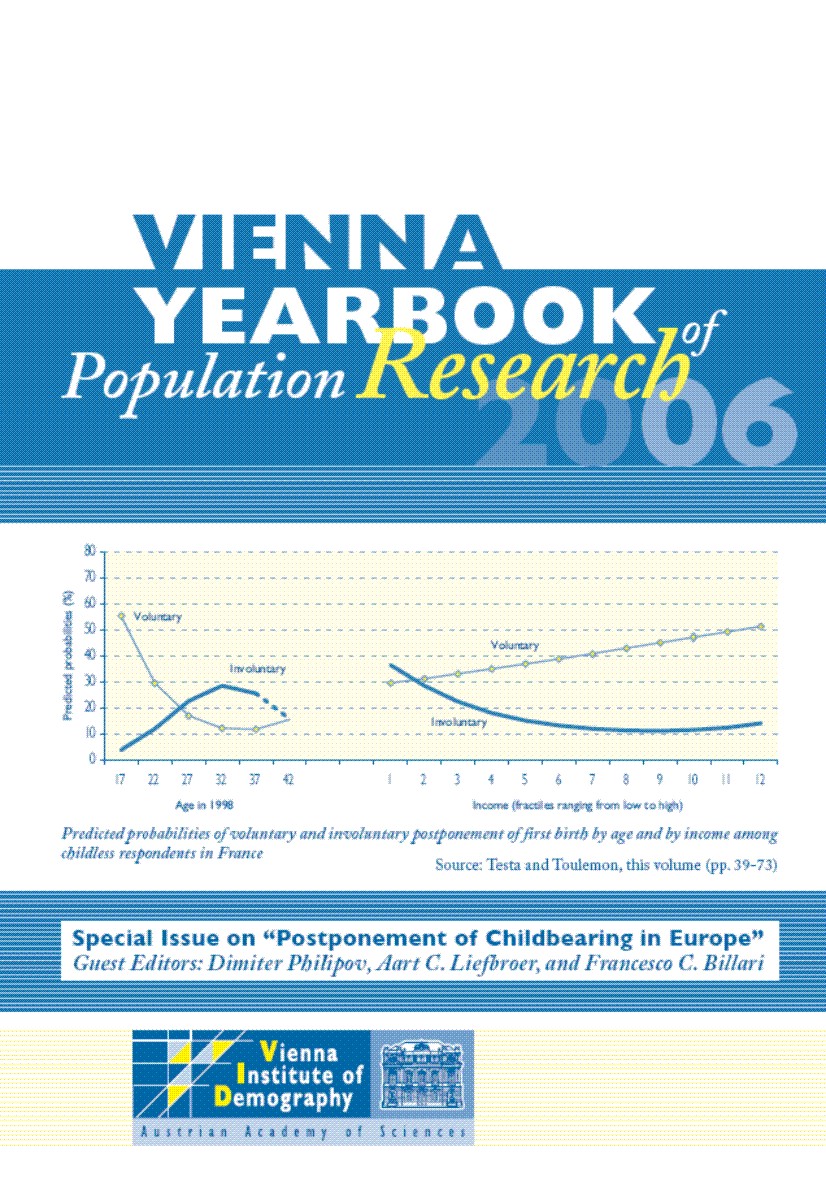
Vienna Yearbook of Population Research 2006, pp. 77-90, 2024/12/12

Recently there has been increasing interest in the estimation of age-specific fecundability as a result of the progressive postponement of age at family formation in Western countries. It must be noted, however, that the possible negative effects of the postponement could act not only on the physiological component of the ability to conceive but also on the behavioural component (i.e., sexual activity). The main aim of our study was to verify if, the desire to have a child being equal, the coital frequency decreases in one’s 30s as compared to the 20s. For our analysis we used the data from the Multinational Study in Daily Fecundability (MSDF), which has produced a very rich database with behavioural and physiological information prospectively collected on every cycle. We found empirical evidence that the desire to have a child only partially compensates for the decline of coital frequency with age.
Keywords: Sex; Fertility; Childbearing; Family Formation; Europe